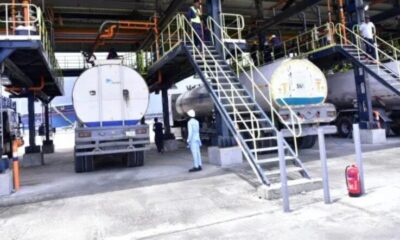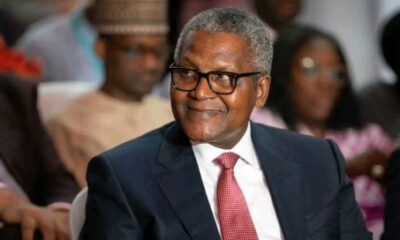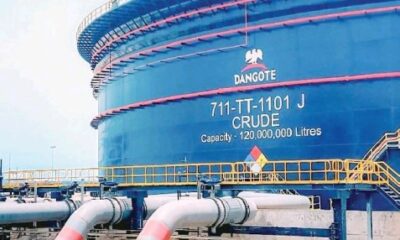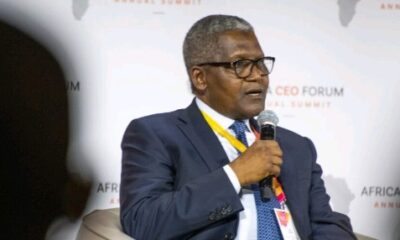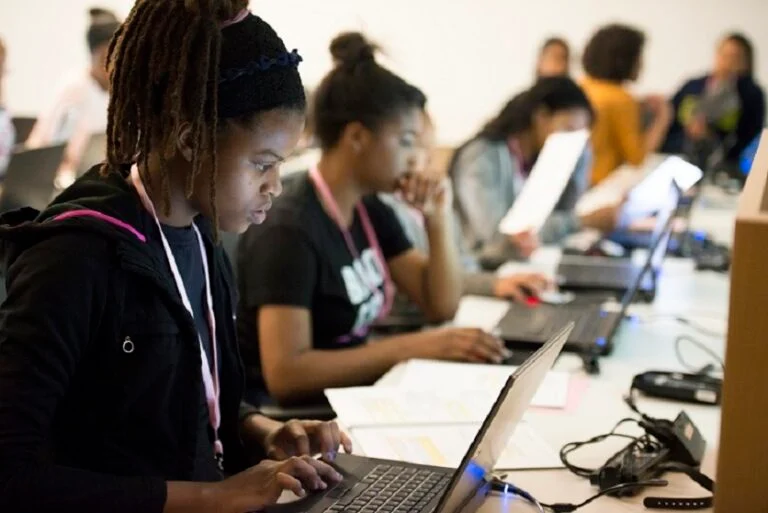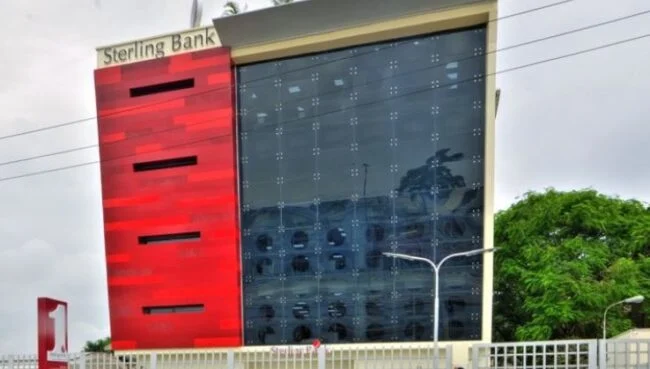…Surprised at scale of investment; says nation set to witness agric boom
President Muhammadu Buhari today commissioned the new 3 million Metric Tonnes capacity per annum state-of-the-art Dangote Fertilizer Urea Plant, with an emphatic assurance that the project would give a huge fillip to Nigeria’s agricultural sector, which revitalization has been a focal point of his administration’s economic policy.
The new plant, which he commissioned in the presence of some 18 governors, ministers, captains of industries as well as prominent traditional rulers, is located at Ibeju Lekki, Lagos Free Trade Zone within the periphery of the Dangote refinery.
A visibly excited President Buhari said the coming on stream of the plant would create huge opportunities in the areas of employment, trade, warehousing, transport, and logistics. The Plant, according to the President “will greatly create wealth, drastically reduce poverty and secure the future of our nation”.
He said, “In the agricultural sector, another focal point of our economic policy, we expect a boom as fertilizer is now readily available. Many Nigerians who hitherto practiced subsistence farming because of the non-availability of necessary inputs can now take up agriculture as a business. We expect a rise of a new breed of agropreneurs who will add value to farming and make the nation self-sufficient in food production.”
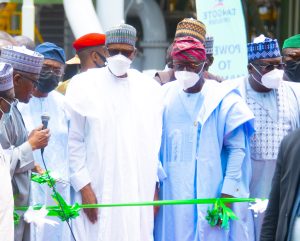
According to him, the federal government is now determined more than ever before to provide enabling environment for private sector investors to thrive, adding that his government would continue to improve on infrastructure, power, security, and enact relevant laws and regulations that would drive investments in the economy.
President Buhari reiterated that part of the government’s effort in this regard was the partnership with the private sector government via a tax credit scheme, in the rehabilitation of roads across Nigeria under Presidential Order No. 7.
“As we all know, good roads contribute to easy movement of goods and services across the nation, thus reducing the cost of doing business and improving productivity. We are also rehabilitating our railway lines and building new ones to lessen the burden on our roads and create more effective multi-modal transportation networks,” he added.
In an earlier welcome address, President of Dangote Group, Aliko Dangote described the new plant as a game-changer, as it has the capacity to make Nigeria become self-sufficient in fertilizer production, with spare capacity to export to other markets in Africa and the rest of the world. He added that already, Dangote fertilizer has reached the markets in the USA, Brazil, and Mexico.
According to him, the Fertiliser plant, which is the largest granulated Urea fertilizer complex in Africa, occupies 500 hectares of land, was built at a cost of $2.5 Billion, and is expected to reduce drastically the level of unemployment and youth restiveness in the country through employment opportunities. To him, the plant is expected to generate new jobs with top-quality fertilizer being available and in sufficient quantities for the farmers.
He stated that agriculture accounts for 20 percent of the nation’s GDP and that the new plant was an ambitious project that would provide both direct and indirect employment, thereby reducing youth restiveness.
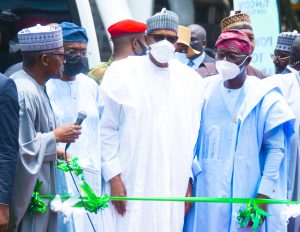
Dangote Fertiliser, according to him, would ensure the emergence of farmers in the country, providing hundreds of jobs and ushering in a new era of agricultural entrepreneurs, (agroprenuers). “This breed of agroprenuers will take to farming on large scales, providing food and raw materials for our industries,” he added.
Dangote stated that the fertilizer plant is rolling out with innovations that would transform the agricultural sector in the form of extension services for small and medium-scale farmers. It has set up a well-equipped fertilizer soil testing laboratory to enable it to analyze and identify soil deficiency and the appropriate fertilizer blend.
“Studies have shown that applying the right fertilizer to the soil will boost productivity. This service is to cover all the geopolitical zones, and will surely change the agricultural landscape in the country by transforming farming into a lucrative profession.
“Dangote Fertiliser is working with Farmer Associations, Corporate Farmers, NPK Blenders, NGO/development partners and State Governments all over Nigeria, and governments across Africa and beyond who are looking for a sustainable approach to improving soil quality and farm yields,” he explained.
Speaking at the occasion, Governor of Central Bank of Nigeria, Godwin Emefiele said Nigeria is indeed indebted to Aliko Dangote for his giant stride to add value to Nigeria’s economy. According to him, “It is great that a Nigerian has taken not just this great initiative of helping to solve our perennial problem of importing petrochemical products including fertilizer but has taken advantage of the emerging huge market opportunity presented by recent global developments.”
Emefiele commended President Buhari for providing all the support needed to put in place economic policies that would reverse the trend of the doldrums, pointing out that the completion of the fertilizer plant is a stellar example of the realization of the vision.
The CBN governor described the fertilizer plant as timely considering the recent developments in the global market, where prices of wheat, fertilizer, and crude oil spiked by over 20 percent, following the start of the Russia – Ukraine war.
“In addition to the lessons we learned from the protectionist actions of countries during the early days of COVID-19, this investment is again a glaring testament to the foresight and tireless efforts of Mr. President in encouraging domestic production of items that can be produced in Nigeria, especially agriculture. This would not only help to enable greater productivity of our agricultural sector but also help in insulating Nigerian farmers from depending on imported fertilizer,” Emefiele stated.
He recalled that prior to 2015 when President Buhari resumed office, Nigeria had a fertilizer shortfall of about 3.5 million tonnes per annum compared to the over 6 million tonnes per annum required in the country.
“Then President Buhari inaugurated the Presidential Fertiliser Initiative and charged them with resolving this problem. With sustained efforts, other indigenous companies like Indorama and Notore with a combined capacity of over 2.5 million tonnes per annum have tried to match the market demand, yet the country still faced a huge shortfall of fertilizer supply. Today, Nigeria is self-sufficient in the production of urea, and we are also the leading producer of urea in the African continent,” he added.
The Minister of Agriculture, Dr. Mahmood Abubakar called on other investors to rise up to the occasion, noting that the Dangote Fertiliser would help to solve the problem of fertilizer shortages in Nigeria. He also assured that the government would enforce standards in the industry to maintain quality.
Lagos state governor, Mr. Babajide Sanwo-Olu commended Alhaji Aliko Dangote for always blazing the trail, noting that the Lagos state government was happy to be hosting many of his businesses. He added that “with the largest fertilizer plant in Africa in Lagos and the largest refinery in the world coming soon, there is nobody that would not be proud of Alhaji Dangote.”
The governor stated that Nigeria would quickly forget its many economic problems if another entrepreneur like Dangote could be replicated in other regions of Nigeria.
Sanwo-Olu also said that private investors could always count on the Lagos State government when it comes to the provision of an enabling environment to make businesses thrive.
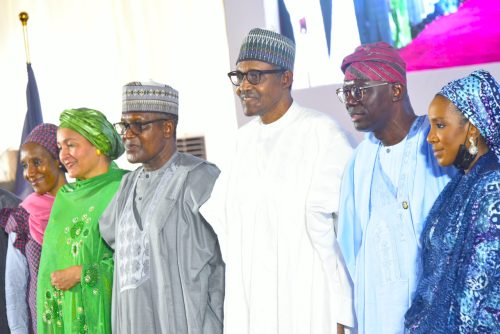

 BIG STORY3 days ago
BIG STORY3 days ago
 BIG STORY3 days ago
BIG STORY3 days ago
 BIG STORY9 hours ago
BIG STORY9 hours ago
 BIG STORY2 days ago
BIG STORY2 days ago
 BIG STORY3 days ago
BIG STORY3 days ago
 BIG STORY1 day ago
BIG STORY1 day ago
 BIG STORY2 days ago
BIG STORY2 days ago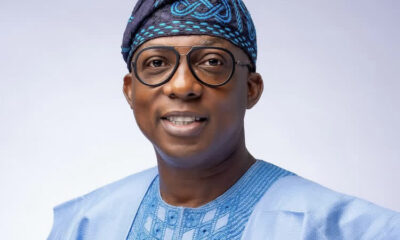
 BIG STORY1 day ago
BIG STORY1 day ago








